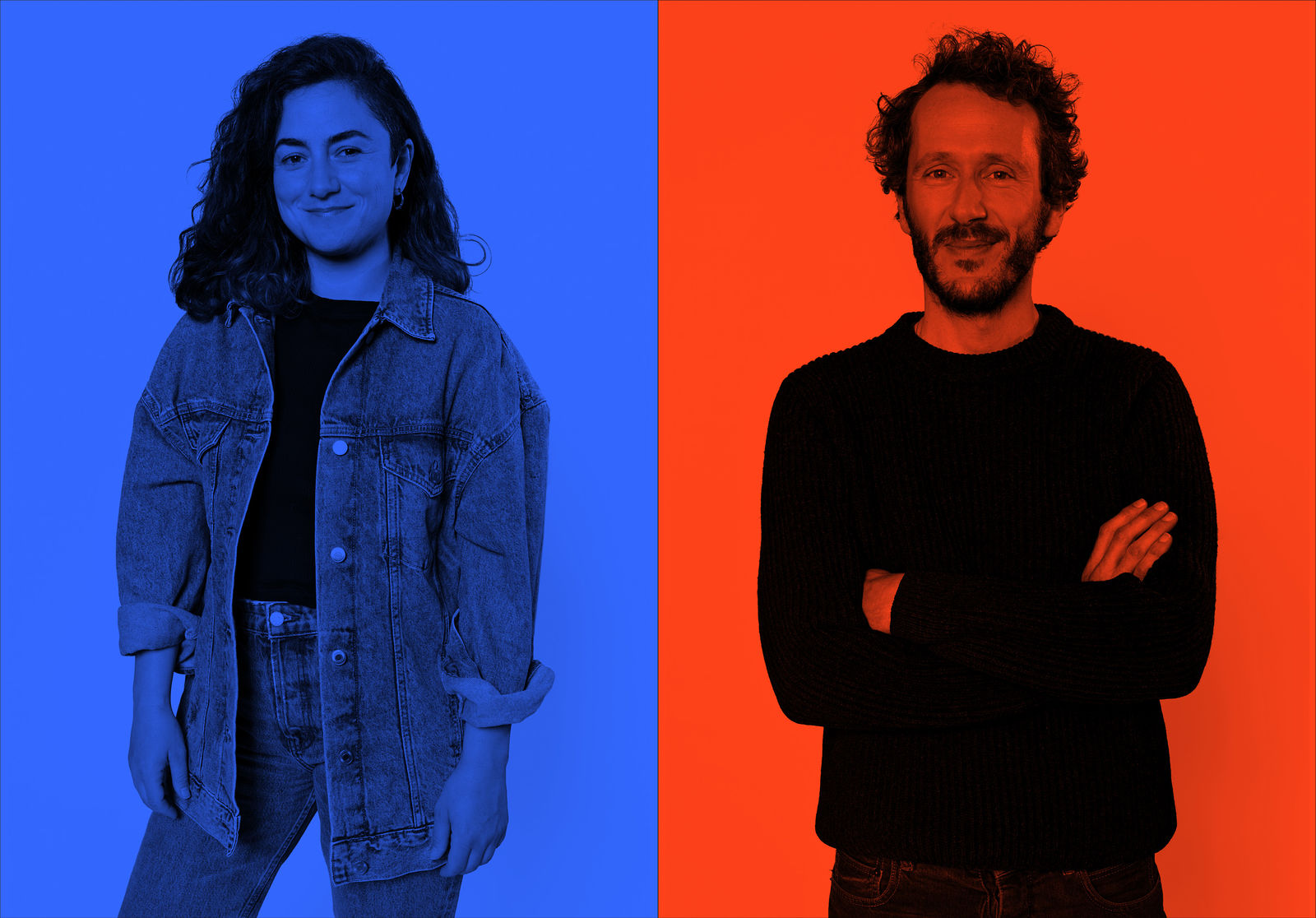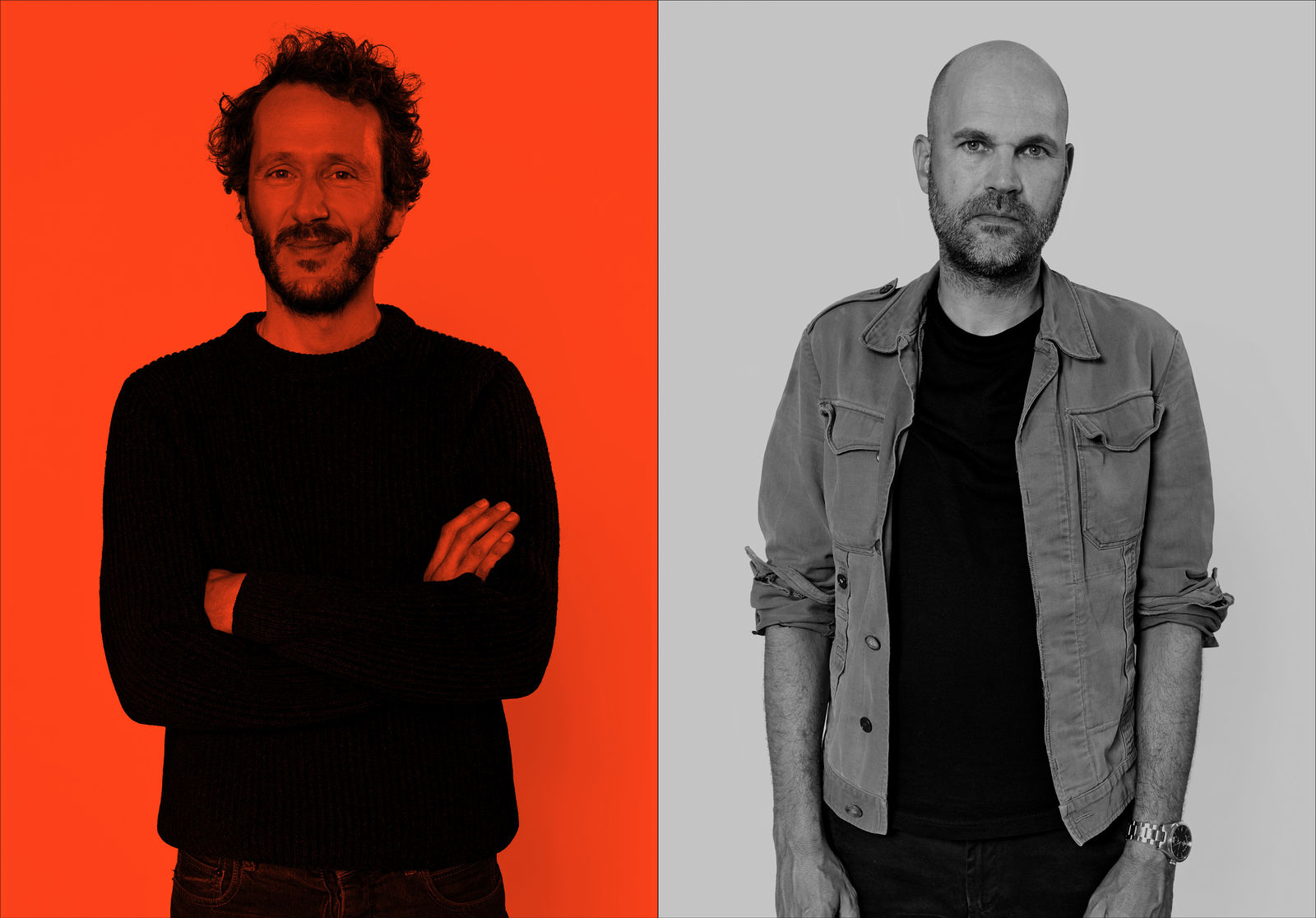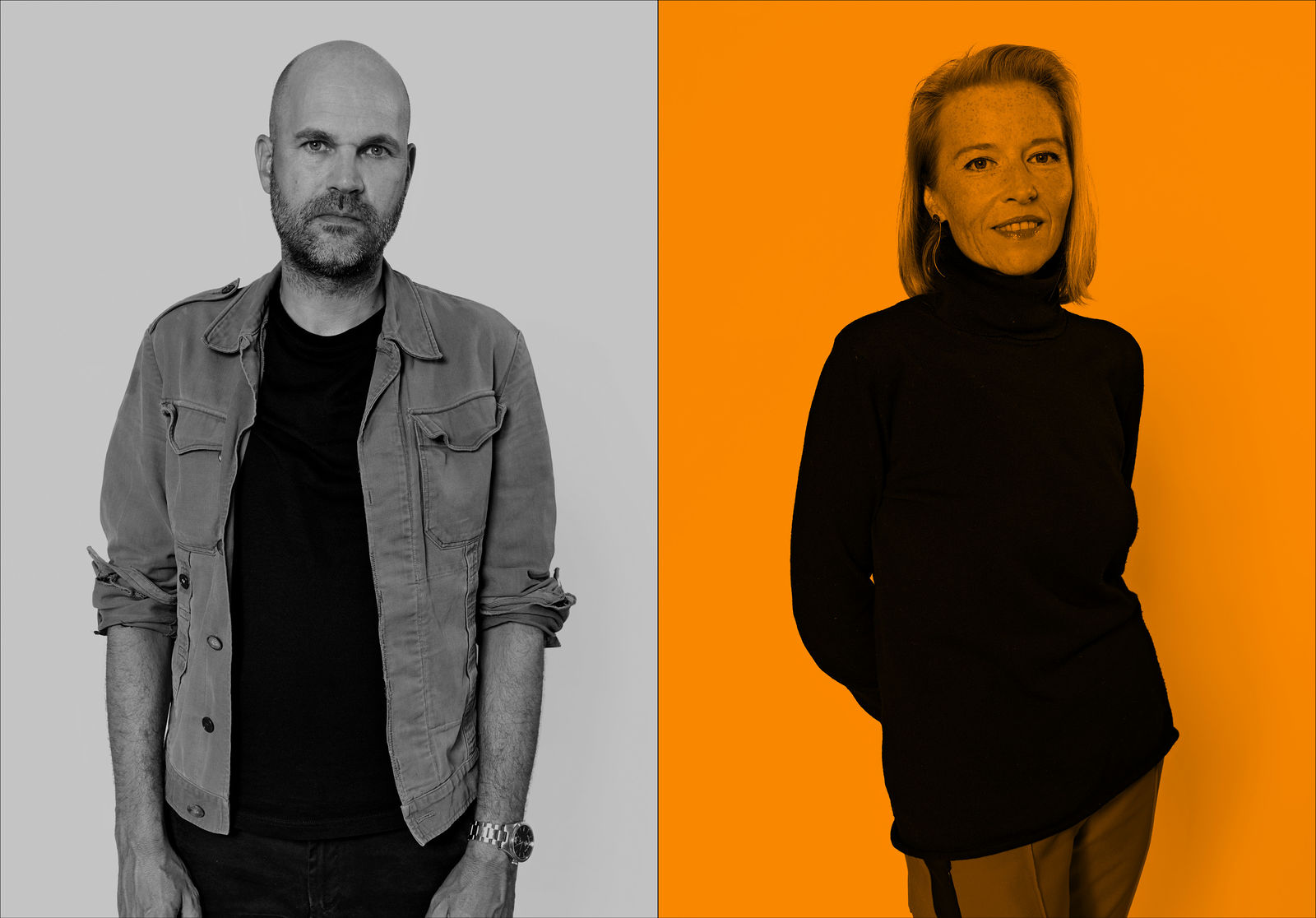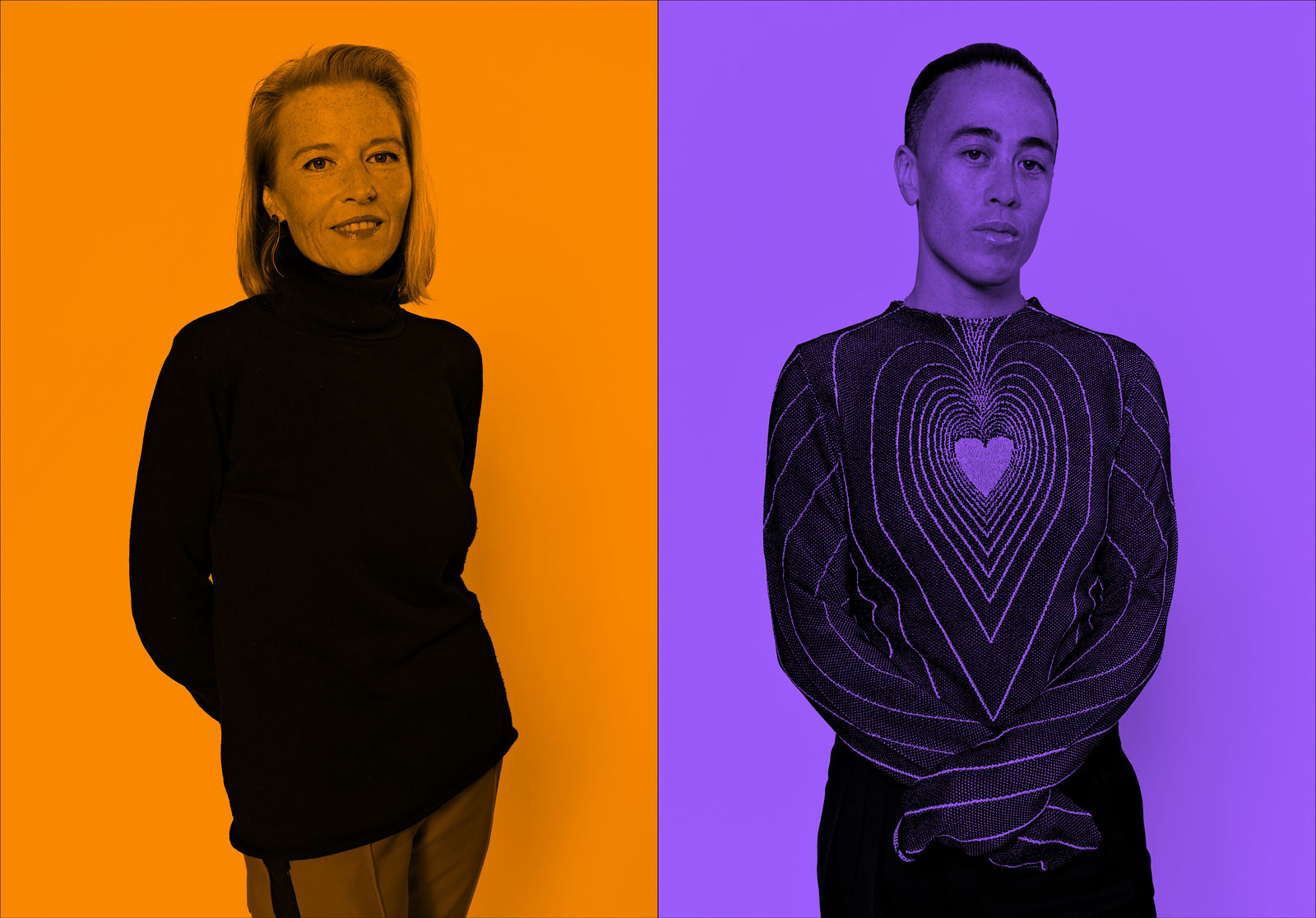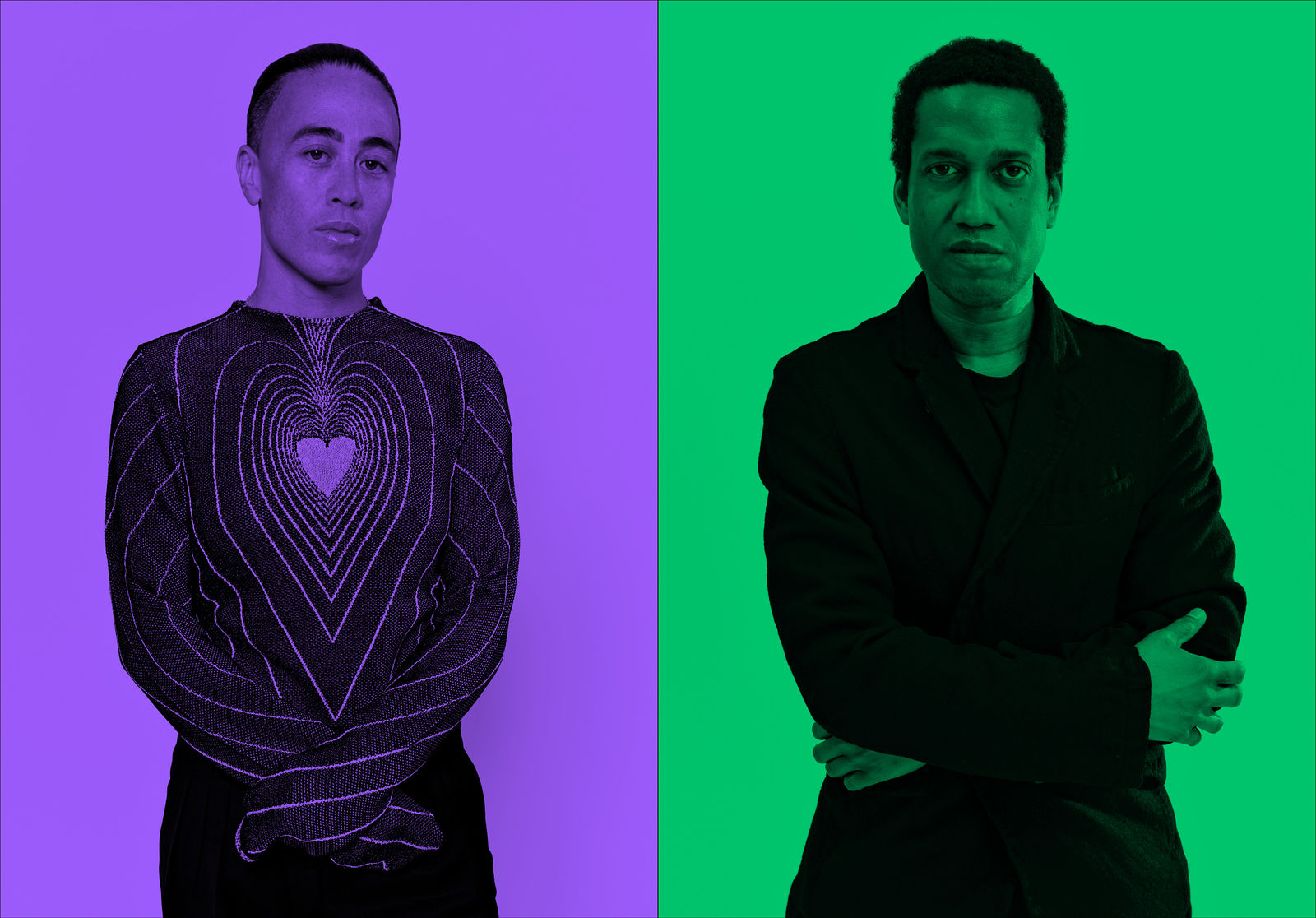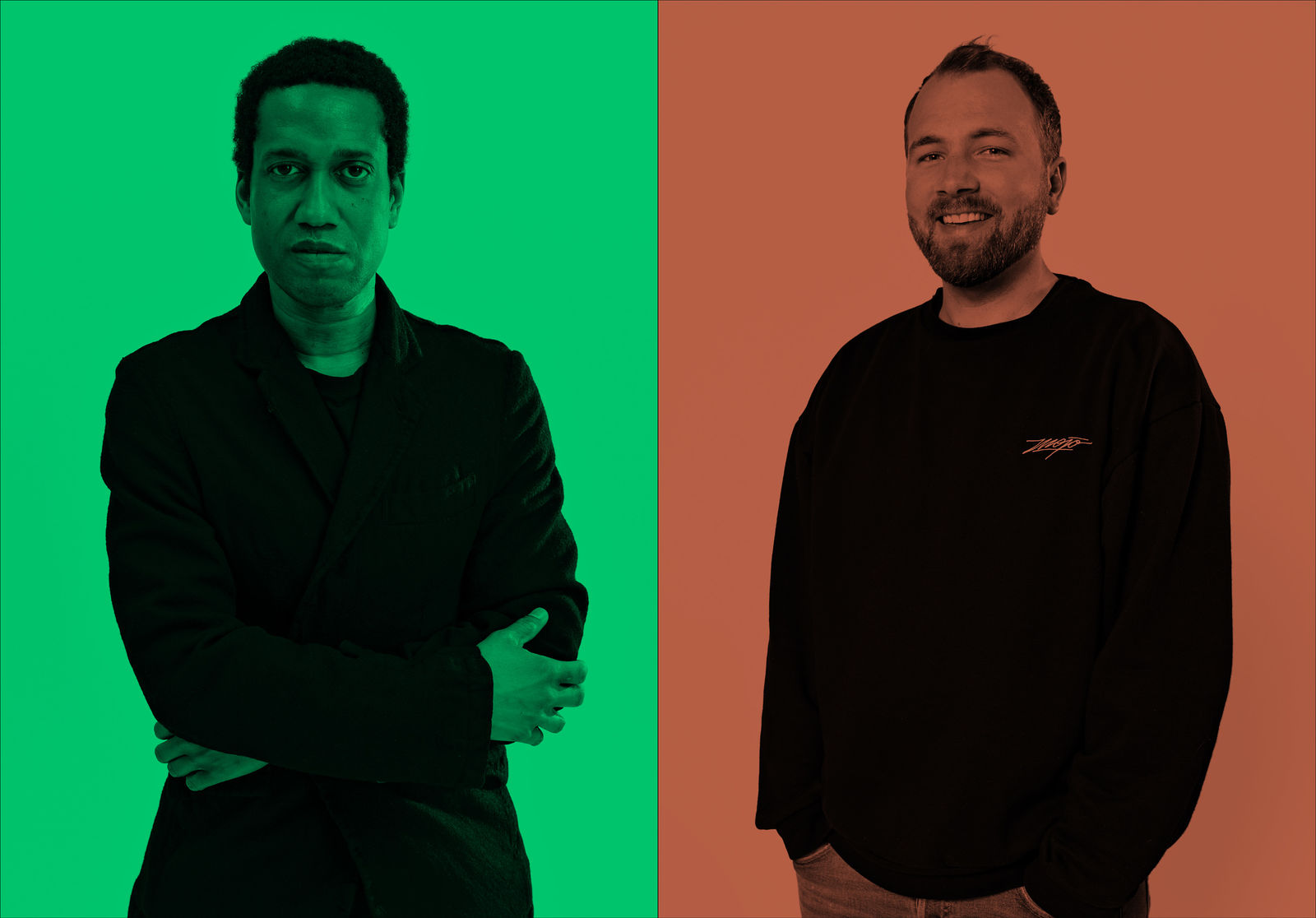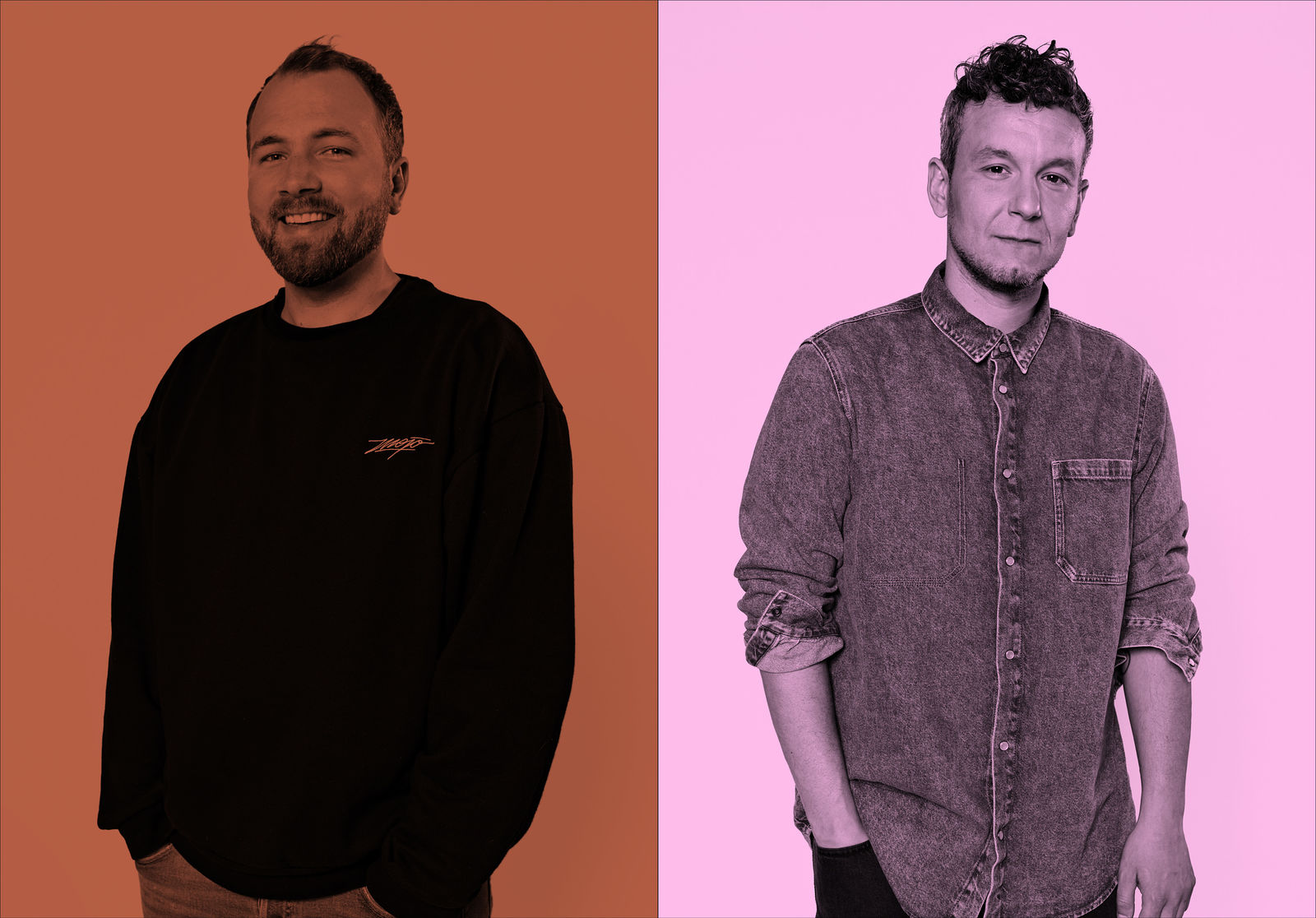Directors Talk:
Alexander Giesche
and Suna Gürler
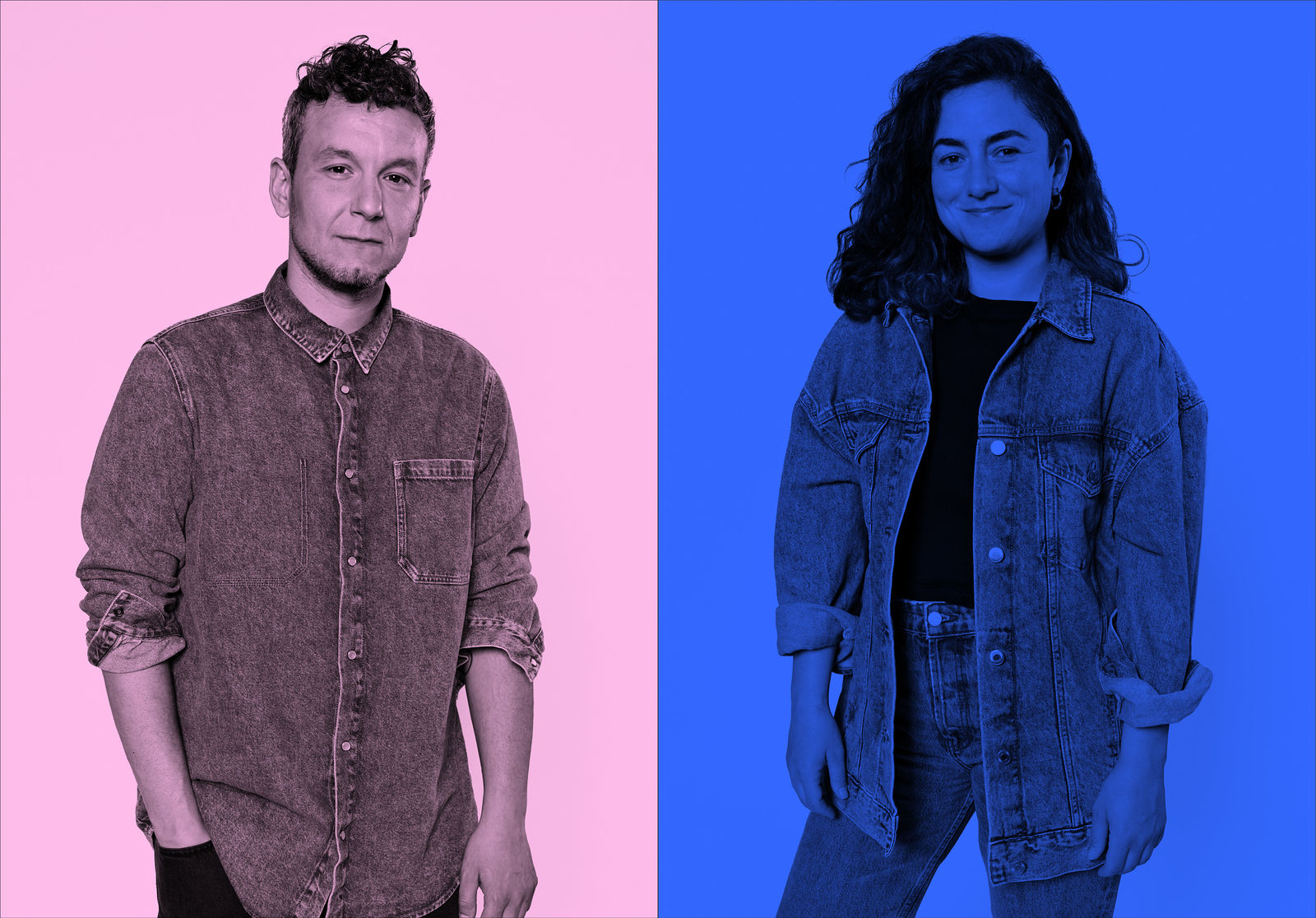
With the series Directors Talk you can bring our in-house directors Alexander Giesche, Suna Gürler, Trajal Harrell, Yana Ross, Christopher Rüping, Nicolas Stemann, Wu Tsang, and co-artistic director Benjamin von Blomberg along with you into the productions of the 2021/22 season in eight conversations. During the second lockdown they met on Zoom to talk about here, now, and tomorrow, mainly in pairs and once round-robin. The conversations are part of the season preview, which presents the 2021/2022 season and is available now in all our venues, as well as free to order online.
published on 31. August 2021
“I think it’s much nicer to invite than to be invited."
[19:15] Alexander Giesche: Hello. Suna Gürler: Hello. Better now? Yeah, that’s great. It’s like restarting the computer. There’s this new program for Zoom¹ that you can use to play background noises. A construction site in the background, for example, or whatever. That’s cool. Yeah, or you can play an echo of yourself. I wonder how many times people have just hit Apple-Q and said: “My computer crashed somehow” or “my internet connection is gone.” Tell me: did you present something at our presentation for the next season? Yes. There’s an initial idea, we’re only just getting started. It will be a new play with teenagers in the leading roles written by multiple authors together. In Swiss German or standard German? In Swiss German. There’s a rough idea: at the beginning there’s an incident of racist police against a young, Black, Swiss person. And based on that, we’ll develop different perspectives on and reactions to the event: How does the person who is affected go about dealing with that? Conversely, what does someone do who witnessed the incident and actually doesn’t want anything to do with it, even denies that the crime could be racially motivated? And how do the people surrounding the victim and witness behave? What role do their upbringings, mindsets, privileges, racialization, gender, class play in dealing with the incident? My wish is that all of the characters, no matter how they define their affinities, gain political awareness over the course of the play because they become emotionally involved in the incident, have to grapple with it and position themselves toward it. I think the play will be something like a political coming-of-age story. It gets exciting when personal problems become visible within the political. Exactly. Or you think that they’re personal problems, but they’re actually structural. And maybe, yeah, it could be about taking action or first getting angry and then moving into action, into activism. I always think it’s very interesting to first take stock: Okay, where are we right now in Zurich? It’s really good that we’re having this conversation today. I’d like to do something with the youth club next year, Suna. Really? Alright, let’s talk about it. What interests you about it? I’m noticing that I’d kind of really like to work with teenagers… Well, I really understand their anger – or, maybe, better put – despair at the moment… I think that Holozän² was mainly about teaching survival training to the next generation of kids and spurring them on and saying: faster, faster, you can do it. Then I just realized that I think it’s very important to take them by the hand and also to encourage them to be able to think up alternatives. I also used to be in the youth club in Munich, at the Kammerspiele. You were at the Kammerspiele? Yes, and I think I can identify pretty well with what you describe as an apolitical teenager who comes from a good middle-class home and could learn to stand on his own feet for the first time. The nice this about it is: you’re not at all productive at the beginning of the year with the youth club. Getting to know each other, fooling around, improvising. Yeah, getting to know the theatre and the group. I’d definitely like to have this encounter – for myself as well. And not necessarily dependent on the outcome, but just because I think it’s totally important to offer young people a perspective at the moment. And I believe theatre can do that – conceive of another world. Yeah, it’s great that you’re interested in that. Going through a project like that is often transformative for a young person. That is, going through all the doubts, culminating in the applause of success and that sense of relief after the applause. But I’m also noticing now that clubs like these are especially important now that everything’s being canceled in the pandemic. The sense of solidarity is very strong. I was really afraid, though, that the group would break apart during the Zoom period; we met for almost three months exclusively on Zoom. And then we met again for the first time, almost everyone came, except for one. We weren’t allowed to meet inside and met outside when it was 1 degree [Celsius], freezing in the rain, that was pretty nuts. Back then I went because of my best friend. Really?! So funny, I went because of my mother. She wanted you to have something to do on Tuesday evenings?! Exactly. I was so shy and then she saw an ad in the newspaper by the junges theater basel and more or less dragged me there. But I didn’t have the guts to go alone. And then I asked everybody at school until somebody agreed to go with me. Anyway, you tell me. You’ll be working with Momo next year, right? Yeah, I’m really looking forward to it. Did you know Momo as a kid? Of course. My best friend’s nickname was Momo, funnily enough. And the book was charged with something else entirely just because of that. But these Michael Ende meta-worlds in general… I was pretty consumed by them. That was my children’s book author. And yeah, Momo… Three projects about the end. What? I did three projects in Zurich about the topic of “the end,” one right after another. It would be Michael Ende during the third season? What an arc! I’m jealous. Yeah, let’s see how much of Ende will be left in the end. Momo is supposed to be a project about asynchronicity and efficiency. And actually, to pose the question of “do we need to reevaluate success?” through artistic research. Aren’t there other categories besides clicks and utilization figures? Which concepts are we actually chasing after? I have the feeling that I’m somewhat of a digital borderliner. The Internet came early enough that it really changed my life. And that’s why I have an extreme level of understanding for my mother’s generation, for whom everything’s happening too quickly and who would never ever think of watching a tutorial or of googing: how do you do that? At the same time, you’re now coming to the realization that a generation has already grown up with Instagram. We were the ones with Facebook – I was 18 or 20 when it splashed over from the UK. I still thought it was sort of really strange. It’s become so easy nowadays to talk over Zoom, for example, like right now – but we still haven’t learned it properly, in real time. So I still feel like a total beginner when it comes to emails. But I think emails… they’ll die out too. It’s just a transitional phenomenon. And then those annoying texts messages which monitor you: “Did you not read my email from three minutes ago?” – “No, sorry.” Deceleration isn’t the goal in any sense, but I’d like to have a kind of concentration or a different way of dealing with it in my private life. Let’s see what happens, but I think that after two years of everyone having their gym and sauna at home and being there and muddling through his or her life completely oblivious to others, it could be quite exciting to see what it actually means to wait for this ergometer. Yeah, that is interesting. I also just remembered how my dad confronted me and my sister for not reliably responding to our family chat. And I counted how many people I actually write with every day and how many chats I’m in. It’s 60 to 100, 150 people! They can’t imagine it. I can’t either, though. Yeah, it sounds really silly, but I’m really happy that you’re working with Momo. I didn’t expect that and then, once I heard about it, I thought: awesome. But that also has to do with readjusting one’s own glasses. What does being successful mean to me? Does it mean being able to spend time with my family? Or does it mean doing 17 plays per year in order to… That’s exactly it! Inviting family to a premiere and only seeing them 17 days per year? I have a friend who can choose his work shifts and he has an extra physical birthday calendar with all of his closest friends. And he just sits down and doesn’t work on those days during the year, never. It’s great. And that’s my role model. That’s something I really envy. I always forget birthdays. But maybe that’s also because my birthday was over school vacation and so there was never a party for me. You’re such a grinch!³ The grinch who hates Christmas because he wasn’t allowed to celebrate it himself. I like inviting people. I think it’s really much, much nicer to invite than to be invited. But yeah, birthdays. Do you believe in summer? Hm, not really. Do you? I don’t know exactly. I don’t know. I’ve just been working with the biggest optimist on earth for too long. Sometimes you have to be the biggest pessimist. I’d say: realist. On that note: have a nice evening! (Suna’s Zoom freezes, Alex opens his mouth and stays in that position.) Now I see you again. Hello! Looks good. Aha. We’re in the middle of saying goodbye, right? Yup. [color 0056BC]Great. So… Have a nice evening. Same to you. Bye! Ciao ciao. [20:05]
1 Zoom Escaper, www.zoomescaper.com
2 Der Mensch erscheint im Holozän is Alexander Giesche’s first production at the Schauspeilhaus Zürich. It was invited to the 2019 Berliner Theatertreffen and awarded the 3Sat prize, among others. Revivals are planned!
3 Depending on the story or version on film, the grinch is an eccentric creature with green fur who lives alone in a cave and hates Christmas. Spoiler: This is because the Grinch was all alone and sad as a young Grinch while everybody else was super happy and got to celebrate Christmas in company.
